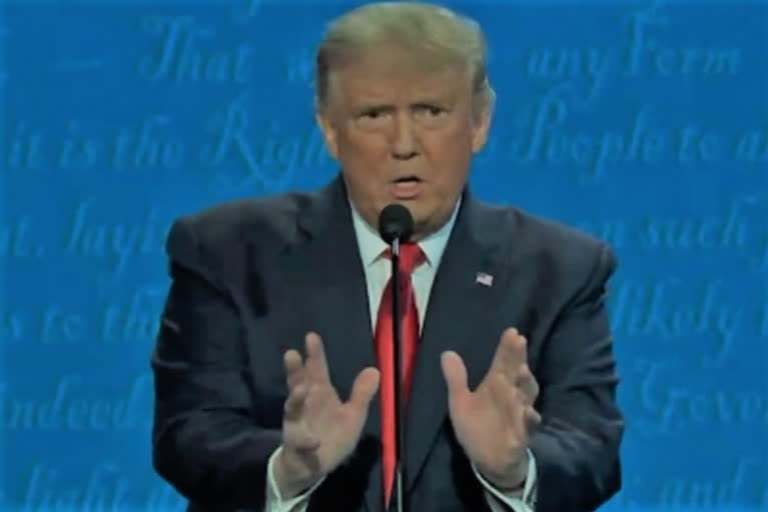New York: A federal appeals court asked a Washington DC appeals court Tuesday to help it decide whether the United States should be substituted for former President Donald Trump as the defendant in a defamation lawsuit brought by a woman who says he raped her over a quarter century ago. The 2nd US Circuit Court of Appeals in Manhattan in a 2-to-1 decision reversed a lower court ruling that had concluded Trump must face the lawsuit brought in Manhattan federal court by columnist E. Jean Carroll.
But it stopped short of saying the US can be substituted for Trump as the defendant in the lawsuit. Instead, it asked The DC Court of Appeals, the highest court in the District of Columbia, to decide whether Trump's public statements denying Carroll's rape claims occurred within the scope of his employment as president.
Carroll maintains Trump defamed her with public comments he made after she wrote in a 2019 book that Trump raped her during a chance encounter in the mid-1990s in a Manhattan department store. Trump denied the rape and questioned Carroll's credibility and motivations. The 2nd Circuit said Trump would be entitled to immunity by having the U.S. substituted as the defendant in the lawsuit if it was decided that his statements came within the scope of his employment.
But it said courts have been inconsistent in previous rulings and that the D.C. Court of Appeals might be in the best position to answer the question. Roberta Kaplan, an attorney for the longtime advice columnist for Elle magazine, alerted a Manhattan federal court judge in August that she plans to sue Trump in November when the Adult Survivor's Act take effect.
The law offers a one-year look back to enable adult survivors of sexual attacks to bring civil claims when they otherwise would be barred by time requirements. The law, signed by New York Gov. Kathy Hochul in May, was modeled after the Child Victims Act, which provided a similar window to bring lawsuits for people who had been sexually assaulted when they were children. That law expired a year ago.
Alina Habba, a lawyer for Trump, treated the 2nd Circuit ruling as a complete victory, saying it will protect the ability of all future Presidents to effectively govern without hindrance. She added: "We are confident that the D.C. Court of Appeals will find that our client was acting within the scope of his employment when properly repudiating Ms. Carroll's allegations.
In a majority opinion written by Circuit Judge Guido Calabresi, two members of the three-judge panel said they were not expressing any view on whether Trump's public statements were defamatory or whether a sexual assault had occurred.
In a dissent, though, Circuit Judge Denny Chin said the other members of the panel were wrong in concluding Trump was an employee of the government according to a law known as the Westfall Act. He said the law was intended to protect low-level, rank-and-file government employees rather than the president.
And he said he would also conclude that at least some of the statements Trump made after Carroll's book was published were not made within the scope of his duties as president. He pointed in particular to Trump's comment that Carroll was not his type.
In the context of an accusation of rape, the comment she's not my type' surely is not something one would expect the President of the United States to say in the course of his duties, Chin wrote. "Carroll's allegations plausibly paint a picture of a man pursuing a personal vendetta against an accuser, not the United States' chief constitutional officer' engaging in supervisory and policy responsibilities of utmost discretion and sensitivity.'
Chin also attacked the government's position which began when Trump was president and continued under the administration of President Joe Biden that a president acts within the scope of his employment whenever he responds to the media and to public critics.
If that were so, then the mere presence of others would neutralize whatever a President did or said, for no President could be held accountable for damage done in front of a microphone or in an official meeting -- whether defaming a citizen, exposing classified national security information, or inciting a riot. This is not, and should not be, the law, Chin wrote.
Kaplan responded to a request for comment by citing Chin's dissent, calling it a powerful opinion. She added: We are confident that the D.C. Court of Appeals, where this case is now headed on certification, will agree. (AP)



